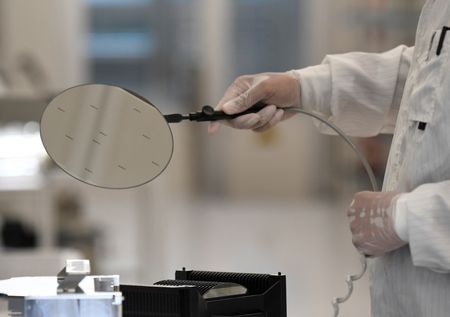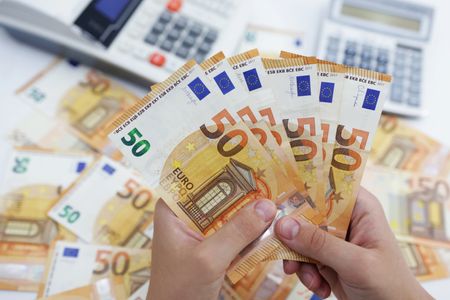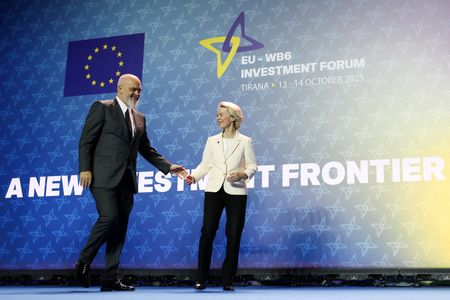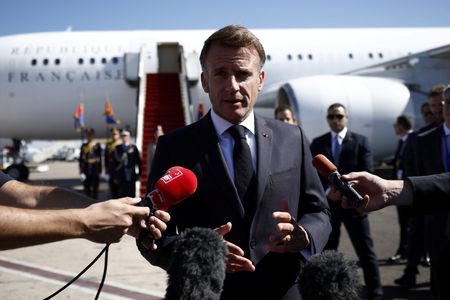By Toby Sterling
AMSTERDAM (Reuters) -The Dutch government has taken control of Chinese-owned computer chipmaker Nexperia, ratcheting up tensions with Beijing as a global fight brews over technology intellectual property, especially around semiconductors.
The government said late on Sunday that it has intervened in Nijmegen-headquartered Nexperia, which manufactures chips for cars and consumer electronics. It cited worries about the possible transfer of technology to Nexperia’s Chinese parent company, Wingtech.
Amsterdam invoked never-before-used powers under a Dutch law known as the “Availability of Goods Act”. The decision led to a 10% fall in Wingtech’s shares in Shanghai on Monday.
The Dutch government will not take ownership of Nexperia, but it will now have the power to reverse or block management decisions it considers harmful. The company’s regular production is continuing.
WINGTECH SAYS DECISION DRIVEN BY ‘GEOPOLITICAL BIAS’
U.S. President Donald Trump is ratcheting up pressure on Chinese tech firms as part of a broader trade war that saw him threaten 100% tariffs on China’s exports last week.
The U.S. and the Netherlands typically cooperate closely on computer chip industry export controls. A Dutch Economic Affairs Ministry spokesperson, however, said there was no U.S. involvement in its decision regarding Nexperia and the timing was “purely coincidental”.
Washington last month expanded a list of blacklisted firms seen as threats to national security to include subsidiaries.
Wingtech had already been placed on the United States’ “entity list” in December 2024 for its alleged role “in aiding China’s government’s efforts to acquire entities with sensitive semiconductor manufacturing capability.”
Nexperia, which is 100%-owned by Wingtech, said at the time that it would comply with the U.S. rules, though it said its operations were kept at arm’s length from its Chinese parent.
Wingtech called the Dutch government’s intervention in Nexperia, once part of Dutch electronics group Philips, “excessive interference driven by geopolitical bias”.
Wingtech also alleged that non-Chinese Nexperia executives had tried to forcibly alter the company’s equity structure through legal proceedings in a “cloaked power grab” on the company.
Wingtech said in a statement that it was consulting with lawyers and seeking government support to “protect the legitimate rights and interests of the company”.
Nexperia, which Wingtech bought for $3.63 billion in 2018, said it complied with all relevant laws and regulations.
COURT ORDERED WINGTECH CHAIR SUSPENDED FROM NEXPERIA BOARD
In its statement, the Dutch government cited issues around “crucial technological knowledge” without elaborating.
“The loss of these capabilities could pose a risk to Dutch and European economic security,” it said.
Nexperia is one of the world’s largest makers of simple computer chips such as diodes and transistors, though it also develops more advanced technologies such as “wide gap” semiconductors used in electrical settings and useful for electric cars, chargers and AI data centres.
Wingtech said in a filing to the Shanghai stock exchange on Monday that its control over Nexperia would be temporarily restricted due to the Dutch order and court rulings, affecting decision making and operational efficiency.
Wingtech said its chairman Zhang Xuezheng was suspended from Nexperia’s boards by an Amsterdam court order on October 6, and an independent non-Chinese person with a “deciding vote” would be appointed in his place.
In addition to the United States, Wingtech has had run-ins before with other Western governments over its operations, with Britain ordering it to divest ownership of a facility in Newport.
The Netherlands scrutinised Nexperia’s purchase of startup Nowi in 2023.
(Reporting by Toby Sterling; additional reporting by Samuel Shen and Brenda Goh in Shanghai. Editing by Diane Craft, Edmund Klamann, Michael Perry and Joe Bavier)

